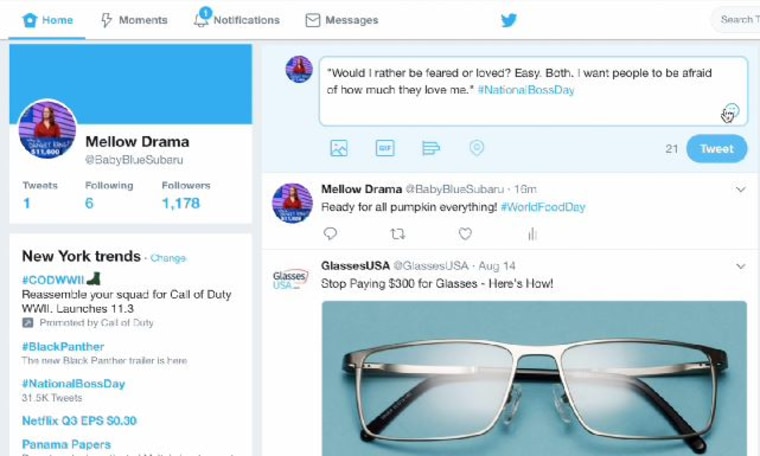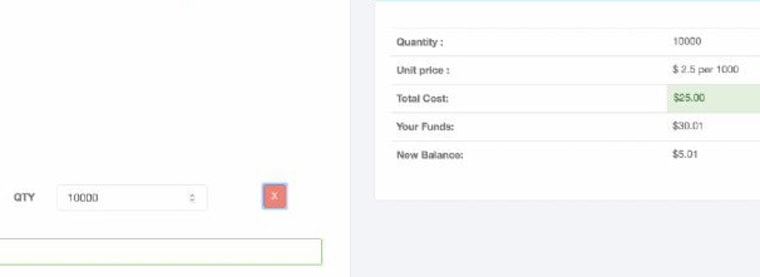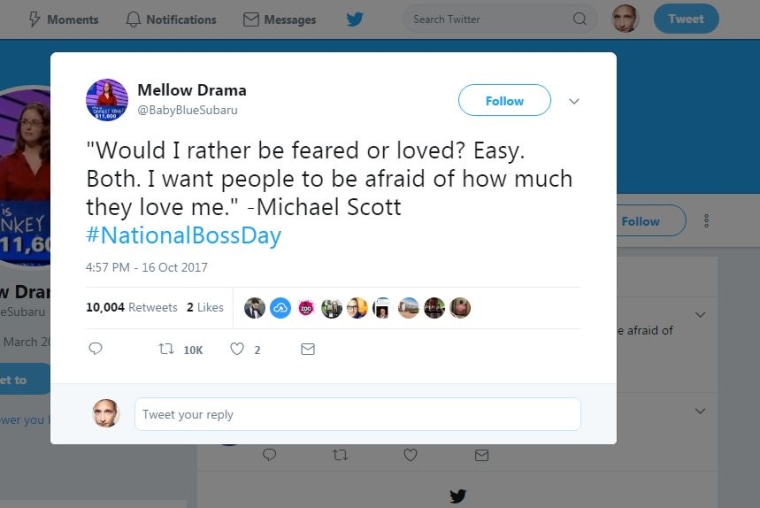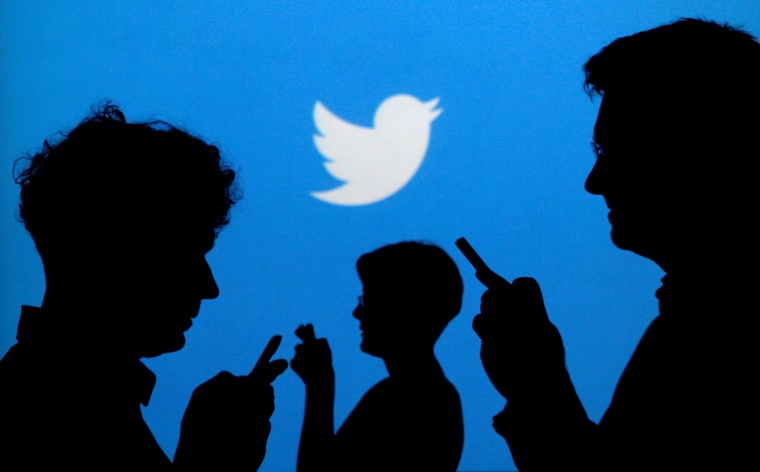So what does it take to influence an election through Twitter?
Well, do you have a few bucks?
All it takes is pocket change and you too can command a small army of bots to artificially boost your message on Twitter. NBC News' Jo Ling Kent connected with researchers at the Institute for the Future (IFTF) to find out how easy it was, spending just $25 to get a message retweeted thousands of times by bots-for-hire.
These "bots" are pieces of code connected to Twitter accounts that look like real people. The accounts come with profile photos, bios, even previous tweets and hundreds of followers. Using massive dashboards and a bevy of technical tricks to avoid detection, "bot herders" can command their legions to follow people, retweet, favorite, and post original tweets and amplify memes.
The bots can retweet posts to make it look like a lot of people are talking about something and game it into being a trending topic. Then Twitter's algorithm takes over and starts surfacing it to regular human users who can start jumping on the bandwagon and interacting with the content.
Bots also can add thousands of fake followers to a politician, celebrity or any social media maven wannabe to make them look more influential than they really are.
They'll likely be a hot topic when Facebook and Twitter face congressional investigators next week.
The IFTF researchers went to a public-facing website and bought thousands of retweets for $25. In two hours, the bots had retweeted the tweet 500 times. In two days they tweeted it a full 10,000 times.



"The whole goal is to seed and fertilize the conversation," Sam Woolley, Research Director for the IFTF Digital Intelligence Lab told NBC News.
"So one of the things that the Russians did and what other governments do is they'll use bots to get momentum. And then once real people start following you or me then all the bots step away."
When actual humans start interacting with an idea then it spreads organically through their networks and the message gets boosted.
That could be an idea, a hashtag, news story, or a piece of "fake news."
More sophisticated bot operators also build and develop their own social media accounts. They code their own bots, rerouting their footsteps through proxy servers around the world to better mimic human behavior and disguise their puppet mastery.
Sometimes they will let accounts lurk for years without a single tweet in order to "age" them, experts say. Then when they get used for a specific purpose their tweets will carry more weight because the account looks older.
It's got Twitter playing whack-a-mole as they develop automated and human-powered ways to spot and shut down bots. The social media platform look for signs like attempts to tweet faster than a human ever could.
In the past, Twitter has relied on the platform's self-correcting nature, with falsehoods being flagged by other users.
But some aren't hearing the message because they don't follow -- or believe --those doing the fact-checking. And just because you see a lie get corrected doesn't mean it doesn't impact your thoughts or emotions on some level.
Bots supported all the major candidates during the election.
But they were especially vocal in their support of Trump and venomous in their denunciation of his rivals.
The automated accounts don't even have to be persuasive to be effective. During the election, some bots latched onto trending political tweets. They flooded the reply thread with aggressive messages, memes and GIFs, poisoning and drowning out the conversation with angry static.
Reached for comment, Twitter referred NBC News to its September blog post where it said it stops over 450,000 suspicious logins per day and "will continue to strengthen ... against attempted manipulation."
Part of the appeal of social media platforms is that they were a democratizing force where any voice, great or small, can instantly get published and heard.
But when all it takes is a few bucks to sway the conversation, then money talks. And those with the most money speak the loudest.
"If the person that speaks the loudest is able to win," Woolley said, "we start to look like a very authoritarian country."

